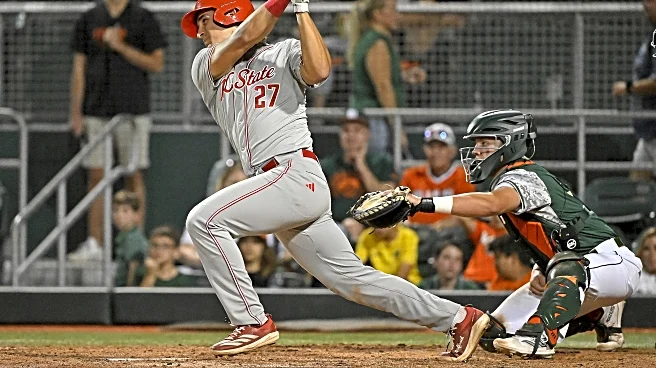What's Happening?
House Minority Leader Hakeem Jeffries has responded to the arrest of a pardoned Capitol rioter who allegedly threatened to kill him. The individual, who was involved in the January 6 Capitol riot, was arrested
last weekend after reportedly making threats to 'eliminate' Jeffries during a speaking event. Jeffries addressed the situation on Tuesday, highlighting the seriousness of the threat and the ongoing concerns regarding safety for public officials. The arrest underscores the continued tensions and security challenges faced by lawmakers in the aftermath of the Capitol riot.
Why It's Important?
The arrest of the pardoned rioter who threatened Hakeem Jeffries is significant as it highlights the persistent security threats faced by U.S. lawmakers. This incident serves as a reminder of the volatile political climate and the potential dangers associated with political extremism. The situation raises concerns about the effectiveness of pardons and the implications for public safety. It also underscores the need for robust security measures to protect elected officials from threats and violence, which can have broader implications for political discourse and governance in the United States.
What's Next?
Following the arrest, there may be increased scrutiny on the process of pardoning individuals involved in the Capitol riot, as well as discussions on enhancing security protocols for public officials. Law enforcement agencies are likely to review and possibly strengthen measures to prevent similar threats in the future. Political leaders and security experts may engage in dialogue to address the root causes of political violence and extremism, aiming to foster a safer environment for political engagement and public service.
Beyond the Headlines
This incident may prompt a broader examination of the legal and ethical dimensions of pardoning individuals involved in politically motivated crimes. It could lead to debates on the balance between forgiveness and accountability, as well as the role of pardons in the justice system. Additionally, the event may influence public perception of political safety and the responsibilities of elected officials in maintaining civil discourse.











